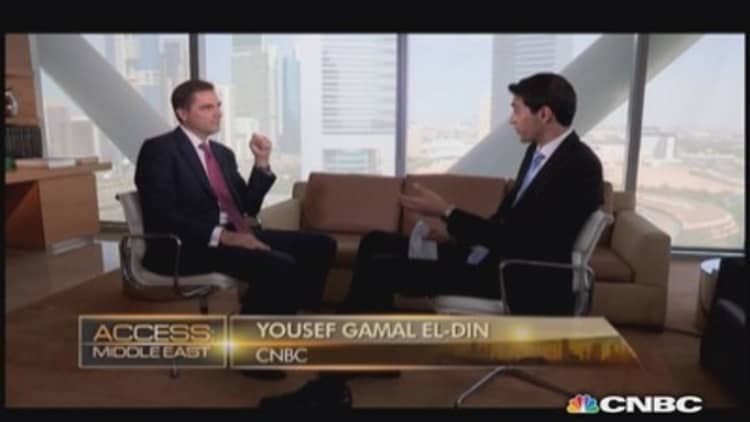Dubai's financial center plans to capitalize on falling borrowing costs by raising some $700 million from an Islamic bond, or "sukuk", to repay outstanding debt as well as fund a new phase of growth.
Essa Kazim, Governor of the Dubai International Financial Center, told a press conference Sunday that the money would help repay $650 million of a syndicated loan, and the remainder to develop physical infrastructure. The sukuk, part of a strategy to unlock collateral, is expected to be issued before the end of October.
A key aspect of the DIFC's expansion plans is likely to be the burgeoning role of Chinese investments. On Sunday, a 1 billion yuan three-year bond issued by the Agricultural Bank of China (ABC) on NASDAQ Dubai became the first in the Middle East by a Chinese issuer. It comes on the back of a visit by a high-level delegation from the DIFC to China.
"As it moves forward into the next 10 years and beyond, the DIFC continues to look to expansion into new services and sectors … with a particular focus on China and the African continent" Kazim said in a statement.
The DIFC is looking to serve as a financial bridge linking regions such as South Asia to Africa and Europe. Competing centers in Qatar and Abu Dhabi with ambitious, well-funded plans have piled the pressure on the region's leading financial hub.
Read MoreMiddle East to take 'rightful place' in world finance: DIFC chief

Officials also revealed the latest operational figures for the DIFC. The number of registered companies reached 1,113 -- a 7 percent increase from the end of last year. The DIFC is seeking to double the number of firms it hosts by 2018.
"With the region emerging as a major force in the global economy, the DIFC is well-positioned to harness the increasing cross-border trade and investment activity," Kazim argued. He added the focus going forward would be on "establishing Dubai as the leading Islamic economic hub."
Financial firms in the zone grew to 350 in the first half of 2014. European institutions still had the strongest representation with 35 percent, followed by 30 percent from the Middle East, while Asia still remained at the lower end with just 12 percent.
Kazim was appointed as Chairman of the DIFC Authority Board of Directors for a two-year term in January of 2014. Jeff Singer, the DIFC Authority's long-serving chief executive, resigned in August citing personal reasons.

